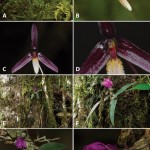Article mis en avant
Diffusion du film « Papouasie, expédition au cœur d’un monde perdu » sur Arte
Vous l’attendiez depuis longtemps, le voici enfin ! Le film « Papouasie, expédition au cœur d’un monde perdu », tourné durant l’expédition Lengguru 2014, sera diffusé sur Arte samedi 25 juin à 20h50. Ce film, réalisé par Christine Tournadre, est coproduit par ARTE France, l’IRD et Mona Lisa Production. Il sera rediffusé dimanche 26/06 à 15h35, vendredi 01/07 à 9h00 et vendredi … Lire la suite
Tumbu-Tumbu
Lundi 17/11, à bord de l’Airaha 2. Réveil au large de l’île de Tumbu-Tumbu : le cadre est enchanteur. Le programme de la journée est à la carte. Il y a le choix entre promenade sur l’île, apnée, plongée de jour ou plongée de nuit ; et il est possible de choisir plusieurs options. Régis propose même un baptême de … Lire la suite
Une belle collecte de lézards
Vendredi 14/11, depuis le camp de base de Kumawa. Aujourd’hui, j’accompagne Evy et Tri, les deux herpétologistes indonésiens. Ils ont placé dans la forêt environnant le camp des pièges à lézards (des pièges collants faits de colle à souris étalée sur un support en bois) et des pièges à varans (des tubes en PVC bouchés d’un côté et dans lesquels … Lire la suite
Sur le chemin des grottes
Jeudi 13/11, depuis le camp de base de Kumawa. Les spéléologues et karstologues sont partis en reconnaissance pour essayer de repérer des grottes. Aujourd’hui comme hier, ils ont remonté le cours d’une rivière en partant de la mer. Ils ont trouvé des résurgences et trois grottes qu’ils n’ont malheureusement pas pu explorer en profondeur, car elles se terminaient très vite … Lire la suite
En route pour Kumawa
Lundi 10/11, depuis l’Airaha 2. Ca y est, nous partons vers le massif de Kumawa ! Le boutre est parti dès 7 heures ce matin, et l’Airaha 2 à 15h15. Sachant que le boutre avançait à la vitesse moyenne de 5 nœuds (miles nautiques par heure) et l’Airaha 2 à 6,35 nœuds, et que le trajet total était de 52,5 … Lire la suite
Une journée à Kaimana
Dimanche 09/11, depuis Kaimana. Aujourd’hui, c’est dimanche : journée de relâche pour tout le monde… ou presque. L’équipe d’organisation travaille, et ceux qui ont pris du retard dans la saisie de leurs données aussi. Installés dans deux pensions différentes, les membres de l’expédition se retrouvent au moment des repas autour d’un plat de riz, poisson grillé et liserons d’eau. C’est … Lire la suite
Expédition Lengguru 2014
L’expédition scientifique LENGGURU 2014 se tiendra en Papouasie du 17 octobre au 20 novembre 2014.
Articles récents
Première publication scientifique : description de 4 nouvelles espèces d’orchidées

Bravo à nos collègues botanistes ! Le premier article résultant de l’expédition Lengguru 2014 est paru. Il s’agit de la description de 4 nouvelles espèces d’orchidées récoltées à plus de 1000m d’altitude. L’article est accessible en ligne, en suivant ce lien: http://phytokeys.pensoft.net/articles.php?id=7590

